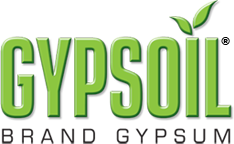Arkansas Study

University of Arkansas Results
(Unpublished study results)
Download Research Trial Notes
Background
Fragipan is a subsoil diagnostic horizon found 12-18 inches deep with high aluminum concentration and very low soil pH. This soil layer impedes root and water movement. The low pH and high aluminum levels are toxic to plant roots and soil biology. This level of subsoil is essentially unusable for cropping and managing water. A significant area of Delta soils contains a subsoil fragipan. For example, Lee County, AR. contains 150,000 acres of fragipan soil.
Topsoil crusting is a problem for many Delta soils. Crusting impedes crop emergence, forcing farmers to take expensive measures to overcome its effects such as overplanting expensive seed and mechanically breaking the crust, damaging valuable seedlings in the process. Soil crusting reduces water infiltration which reduces water use efficiency. The Delta region will experience irrigation water shortages in the future; any practice that results in increasing water use efficiency will be adopted.
Summary
Two years of gypsum research near Marianna, AR. is producing positive results with regard to soil properties and crop rooting. Major observations include:
-
Increasing the rates of gypsum accelerated the reduction in toxic aluminum levels in low pH subsoils and increased root tip penetration into acid fragipan subsoils.
-
Gypsum reduced soil crusting allowing greater water infiltration resulting in higher soil moisture and allowing greater plant emergence.
-
Gypsum increased water infiltration and conductivity allowing for higher topsoil and subsoil moisture.
-
Two ton/acre appears to be the optimal rate for achieving the above results.
Soil Crusting
1. Gypsum reduced soil crusting allowing greater water infiltration resulting in higher soil moisture during critical crop growth stages.
2. Gypsum reduced soil crusting allowing greater plant emergence.
3. Gypsum increased water infiltration and conductivity allowing for greater subsoil moisture.
4. Gypsum improved water infiltration and subsequent topsoil and subsoil moisture in both 2012 and 2013.
Toxic aluminum levels
1. As compared to the untreated checks, increasing rates of gypsum significantly accelerated the reduction in toxic aluminum levels in low pH subsoils.
2. Reduced levels of toxic aluminum gave rise to increased root tip penetration into acid fragipan subsoils.








